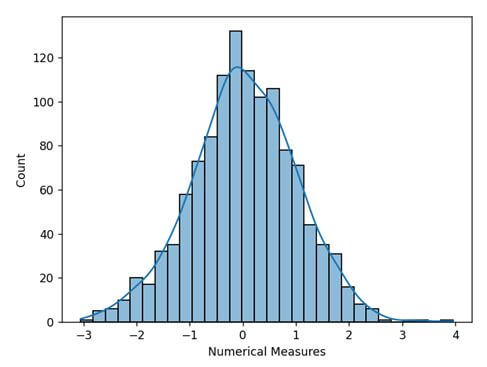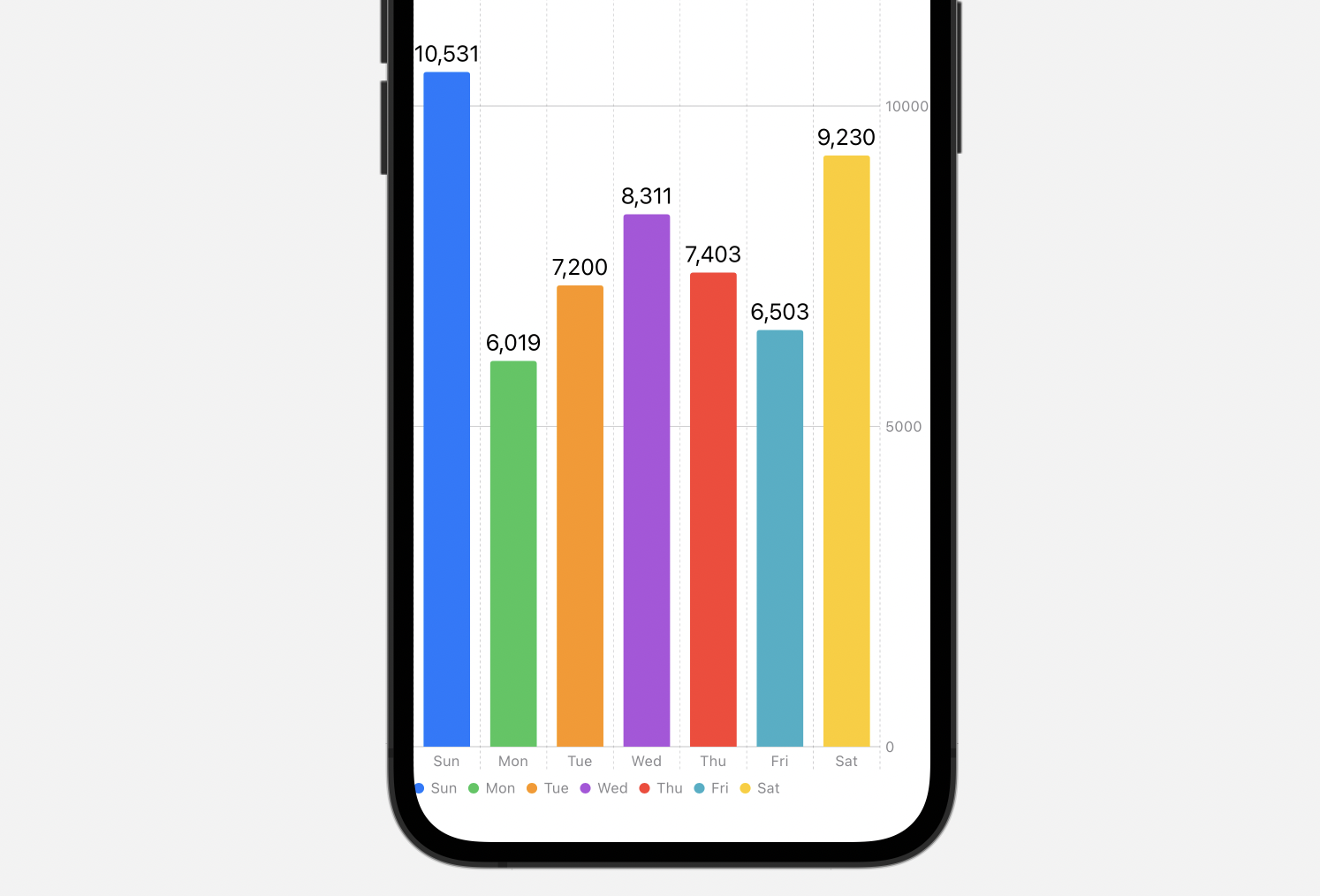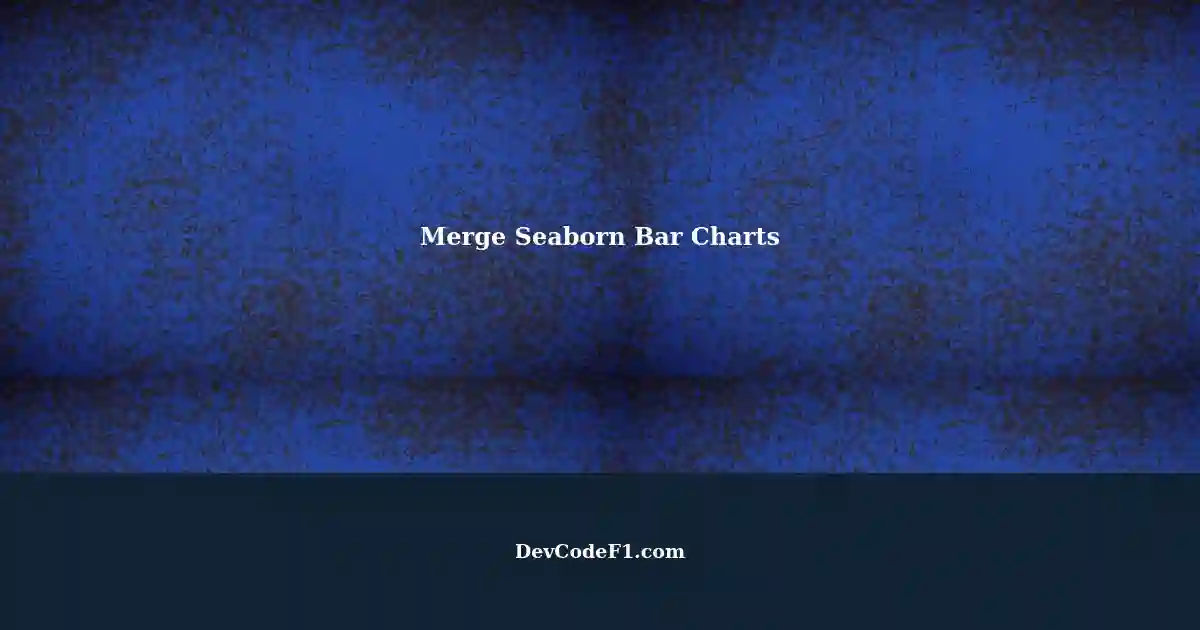Mastering Seaborn’s Bar Charts: A Complete Information
Associated Articles: Mastering Seaborn’s Bar Charts: A Complete Information
Introduction
On this auspicious event, we’re delighted to delve into the intriguing subject associated to Mastering Seaborn’s Bar Charts: A Complete Information. Let’s weave attention-grabbing data and provide recent views to the readers.
Desk of Content material
Mastering Seaborn’s Bar Charts: A Complete Information
Seaborn, constructed on high of Matplotlib, is a strong Python information visualization library famend for its aesthetically pleasing and informative plots. Amongst its many choices, bar charts stand out as a flexible software for displaying categorical information and evaluating totally different teams. This text delves deep into creating efficient and insightful bar charts utilizing Seaborn, masking numerous facets from primary plotting to superior customization and interpretation.
Understanding the Objective of Bar Charts
Bar charts excel at visually representing the distribution of a categorical variable, exhibiting the frequency or common worth of a numerical variable for every class. They are perfect for:
- Evaluating teams: Simply see variations in magnitudes between totally different classes.
- Highlighting developments: Determine patterns and relationships between classes over time or throughout totally different circumstances.
- Presenting abstract statistics: Show means, medians, or different abstract measures for every class.
- Speaking complicated information concisely: A well-designed bar chart can convey numerous data rapidly and effectively.
Primary Bar Chart Creation with seaborn.barplot()
The core perform for creating bar charts in Seaborn is seaborn.barplot(). It robotically calculates and shows the imply (or different specified estimator) for every class, together with confidence intervals. This simplifies the method considerably in comparison with manually calculating and plotting information with Matplotlib.
import seaborn as sns
import matplotlib.pyplot as plt
import pandas as pd
# Pattern information (change with your individual)
information = 'Class': ['A', 'B', 'C', 'A', 'B', 'C', 'A', 'B', 'C'],
'Worth': [10, 15, 20, 12, 18, 22, 11, 16, 25]
df = pd.DataFrame(information)
# Create the bar plot
sns.barplot(x='Class', y='Worth', information=df)
plt.title('Primary Bar Plot')
plt.present()This code creates a easy bar chart exhibiting the typical ‘Worth’ for every ‘Class’. Seaborn robotically handles error bars representing the 95% confidence interval of the imply, offering a measure of uncertainty.
Customization Choices: Enhancing Visible Enchantment and Readability
Seaborn’s barplot() perform gives quite a few customization choices to tailor the chart to your particular wants and improve its visible affect.
-
Altering the Estimator: By default,
barplot()makes use of the imply. You’ll be able to change this utilizing theestimatorparameter. For instance, to show the median:
sns.barplot(x='Class', y='Worth', information=df, estimator=np.median)-
Error Bar Customization: Management the looks of error bars utilizing
ci(confidence interval) andcapsize. Settingci=Noneremoves error bars solely.
sns.barplot(x='Class', y='Worth', information=df, ci=68, capsize=0.1) # 68% confidence interval-
Coloration Palette: Seaborn offers a variety of shade palettes. You’ll be able to specify a palette utilizing the
paletteparameter:
sns.barplot(x='Class', y='Worth', information=df, palette='pastel')-
Including Jitter: For visualizing particular person information factors alongside the abstract statistics, think about using
seaborn.stripplot()orseaborn.swarmplot()along withbarplot(). This helps to point out the distribution of the information inside every class.
sns.barplot(x='Class', y='Worth', information=df)
sns.stripplot(x='Class', y='Worth', information=df, jitter=True, shade='grey', alpha=0.5)- **Axes Labels and







Closure
Thus, we hope this text has offered beneficial insights into Mastering Seaborn’s Bar Charts: A Complete Information. We thanks for taking the time to learn this text. See you in our subsequent article!
